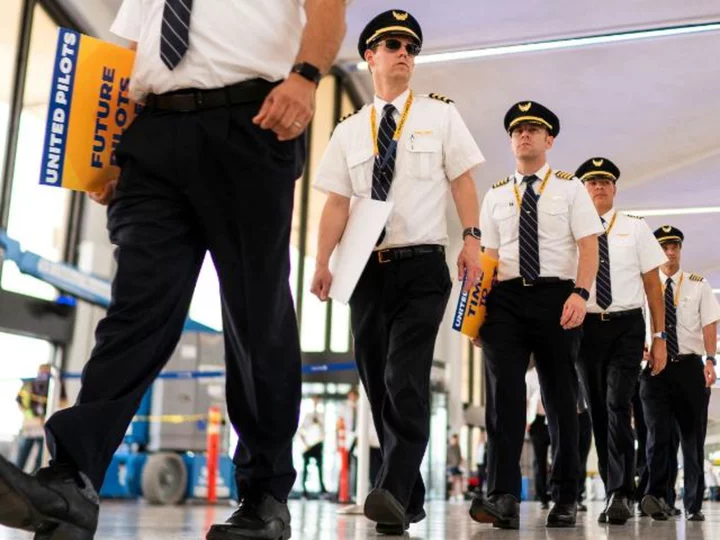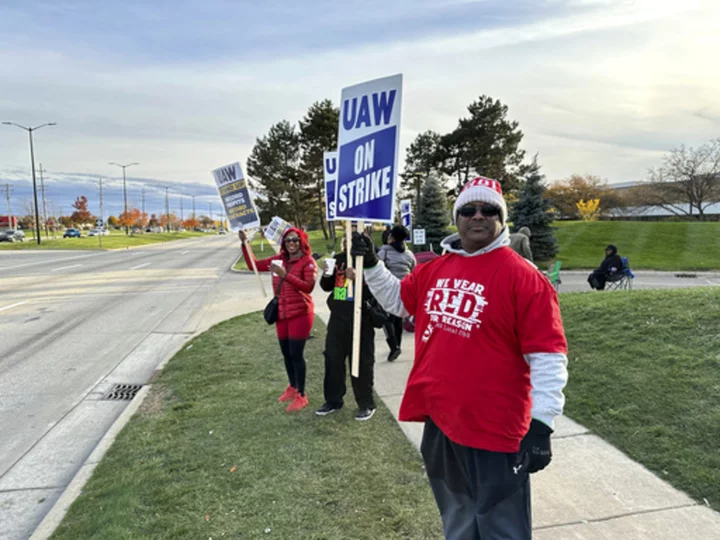A series of controversial proposals to address the airline pilot shortage is complicating Congress' consideration of a new slate of Federal Aviation Administration policies with one senator warning fellow lawmakers there will be blood on their hands if reduced pilot training causes a fatal accident.
The measures presented by lawmakers include raising the pilot retirement age, allowing more training to occur in a flight simulator rather than aircraft cockpit, and fast-tracking training programs. The measures are hotly contested and are aimed at addressing a shortage in airline pilots that was exacerbated by the pandemic. That shortage is already grounding planes and is projected to get worse in the coming years.
A proposal that would change the minimum number of training hours for an airline pilot scuttled plans for a Senate committee to vote on the underlying policy bundle, legislation known as the FAA reauthorization, according to a source familiar with the matter.
The measure was sponsored by Sen. John Thune of South Dakota, one of the body's top Republicans. Republican Sen. Jerry Moran, of Kansas, criticized the holdup. "Our aviation system should not be subject to last minute political whims," he wrote.
Minutes before the Senate Commerce Committee was set to meet on Thursday, the Air Line Pilots Association union publicly and forcefully announced its opposition to the hours proposal. The union wrote in a letter that its members "unequivocally oppose" the amendment.
"Why, when we have reduced the number of airline passenger fatalities by 99.8 percent since the current pilot training and qualification rules were implemented, would such a roll back even be considered?" the group's president, Jason Ambrosi, wrote.
The aviation subcommittee's chairwoman, Sen. Tammy Duckworth took to the Senate floor to explain how she believes cockpit training saved her life when the Black Hawk she was flying in Iraq in 2004 came under fire. The Illinois Democrat scolded those who feel simulator training will be equivalent and said she didn't believe reducing training hours would solve the shortage.
"A vote to reduce the 1,500 hour rule for pilot training will be blood on your hands when an inevitable accident occurs as a result of an inadequately trained flight crew," she said.
On the House side, the House Transportation Committee narrowly approved an amendment that would raise the mandatory pilot retirement age by two years to 67. It passed 32 to 31 on Wednesday and will go to the House floor for consideration as part of that body's FAA reauthorization package.
Rep. Troy Nehls, a Texas Republican, told lawmakers in a Tuesday meeting the amendment had the support of AARP and the Regional Airline Association, and that mandatory retirement ages reflect inaccurate stereotypes about competence.
"If you are a pilot flying for United, American, Southwest or Delta and the day you turn 65, you're out of a job," Nehls said. "Effectively, Congress -- we fire you on your birthday. You're out of here."
Rep. Rick Larsen, the panel's top Democrat, said raising the age would have "a negligible, if any, impact on increasing the number of pilots available." The more senior pilots, he noted, typically fly larger aircraft on international routes — and international flight regulations set pilot retirement at age 65. These pilots would require re-training on other aircraft to serve their final two years.
Nehls called that argument "baloney."
"As the US goes, everybody else goes," he said.
The draft House package also included a provision to allow pilots to count more simulator time toward reaching their hours requirement.









